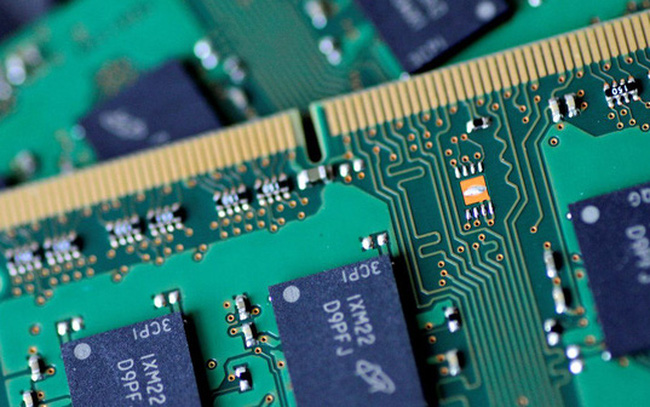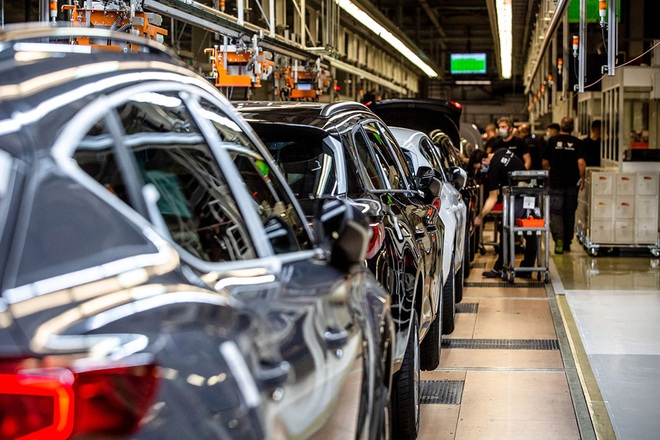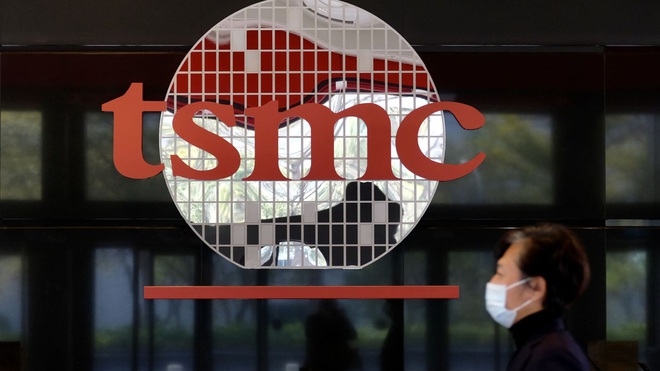Global chip crisis: “Crazy” consolidation and dependence on Asia
- Tram Ho
From delayed orders, short supply of components for home appliances to expensive smartphones, the world is facing an unprecedented semiconductor crisis.
The shortage stems from many causes. One of them is the miscalculation of consumer demand after Covid-19 by automobile and electronics manufacturers. The strong increase in demand caused these firms to urgently prepare orders. Right now, however, chipmakers are struggling to serve big tech brands like Apple, as 5G mobile phones and the Internet exploded after the pandemic.
Along with that, the US embargo against Chinese technology firms has made the chip shortage crisis more serious.

“GOING THROUGH” Gathering goods and a lack of peace have never been
The shortage of chips initially occurred mainly in the auto industry, then spread to other industries such as communications and electronics. With every company that uses chips in its products panicking and “frantically” accumulating inventory, the shortage worsens, causing chip prices to skyrocket.
According to Reuters, panic buying due to fear of shortage of chips also contributed to a surge in demand for this important component. Companies fear that the increase in chip prices will make it difficult for them to balance product costs in the future. This is the reason why these companies are racing to place many orders from now on. This has led to a strong increase in demand while supply tends to decrease due to many factors.
Many experts say the demand is too “hot” could lead to the collapse of the semiconductor industry in the future, especially when chip manufacturers cannot increase production in time to meet demand.

Automakers lose about $ 60 billion this year due to a shortage of chips to produce – Photo: AutoNews
The auto industry is now increasingly dependent on chips for everything from computerized engine management to gas mileage to driver assistance features. The chip crisis also forced many companies to cut production. General Motors, Ford, Volkswagen, Subaru, Toyota and Nissan all had to scale down production to cope with the situation.
A shortage of car semiconductors could affect an estimated 1.3 million light cars globally, according to data firm IHS Markit. It is estimated that automakers lose about $ 60 billion this year due to a shortage of chips to produce.
The fire at the chip factory of Renesas Electronics Corp – which accounts for 30% of the car microcontroller market – exacerbated the situation, IHS said. In addition, severe cold weather in Texas also caused Samsung Electronics Co Ltd, NXP Semiconductors and Infineon to temporarily shut down chip factories.
Meanwhile, the electronics industry also suffered from a shortage of chips. Many manufacturers of household electronics such as air conditioners and refrigerators are forced to cut production because there are not enough chips to meet the order.
TOO DEPENDING ON ASIA
According to analysts, the root of this crisis is that the global chip industry depends too much on manufacturing in Asia. Currently, the majority of chip manufacturing takes place in the continent, where large companies like Taiwan Semiconductor Manufacturing Co Ltd (TSMC) (Taiwan) and Samsung bid on manufacturing for hundreds of chip companies.
According to TrendForce research in Taipei data, Taiwan’s contract manufacturers account for more than 60% of the total sales of the global semiconductor device market in 2019. Most of this belongs to TSMC, the manufacturer. The world’s largest semiconductor manufacturer with leading technology firms such as Apple, Qualcomm and Nvidia. TrendForce data shows that TSMC accounted for 54% of total global semiconductor sales last year.

TSMC is the largest manufacturer of semiconductors in the world – Photo: China Daily
Not only depends on quantity, but the world also depends on Asian companies for the highest-tech chips. Currently, TSMC and Korean rival Samsung are the only two companies capable of producing 5-nanometer chips – the most advanced in the world at the moment. TSMC is preparing for the next-generation 3-nanometer chips, and production is expected to begin in 2022.
Meanwhile, increasing production capacity to meet unexpected “boom” demand cannot happen overnight. Chip factories often cost tens of billions of dollars to build. Increasing production took many years to plan and prepare to qualify for a complex system of machinery.
Before the unprecedented crisis, the government along with businesses racing to release plans to invest in this field.
US President Joe Biden recently proposed spending $ 37 billion to increase chip production in the country. Currently, 4 factories are planned to be built in the US, including 2 factories in Arizona (of TSMC and Intel) and another factory in Texas.
China also launched a number of support programs to boost its chip industry and reduce its dependence on Western technology.
On the side of chip giants, TSMC recently announced plans to spend $ 100 billion in the next three years to expand chip manufacturing facilities. This plan is added to TSMC’s $ 28 billion investment plan to increase production capacity. This huge number demonstrates the determination of the world’s largest chip maker to tackle the explosive demand for new technologies in the future.
| INVESTMENT PLAN | TIME / GOAL | |
|---|---|---|
| TSMC | 100 billion USD | In the next 3 years to increase production capacity |
| Intel | 20 billion USD | To build two factories in the state of Arizona (USA) |
| Samsung | 116 billion USD | In the next 10 years to expand chip production |
Meanwhile, Intel earlier this month announced it would compete directly with TSMC in the chip manufacturing segment for other companies with the investment of $ 20 billion to build two factories in the state of Arizona. South Korea’s Samsung Electronics is also implementing plans to invest $ 116 billion over the next decade to expand its chip business.
Source : Genk
